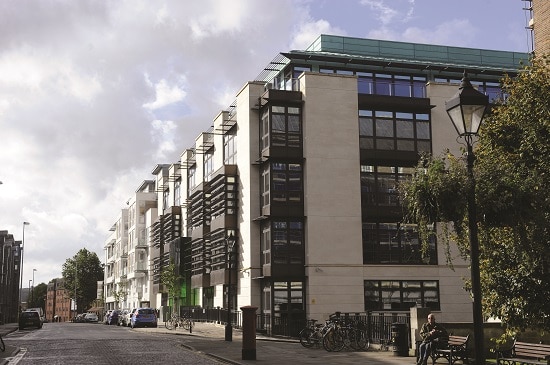Industry bodies within the waste sector have criticised the Environment Agency’s proposals for changes to the way it issues permits, with plans to introduce new charges and fees.
Under the proposed changes – which would come into force on 1 April 2018 – the Agency is proposing to introduce supplementary charges when issuing a permit requires additional assessments (see letsrecycle.com story).
UROC
Responding to the consultation, which closed last week (26 January), United Resource Operators Consortium (UROC) – which represents the industry’s skip hire, waste transfer and materials recycling facilities, said: “We fully support the Agency in respect of its proposals to increase its baseline charging in line with inflation and regulatory effort.”
However, UROC was critical of plans to introduce ad hoc charges: “Contrary to the proposals ‘objective’ of creating a level playing field, we strongly believe that the introduction of an ad hoc discretionary charging regime will further distort the playing field.”
The Association said if operators are levied with charges that reflect the nature and scale of their activities and are either financially rewarded or penalised in their subsistence fees levied year on year by virtue of the compliance banding, this would be “a much fairer approach”.
UROC said given the uncertainties surrounding Brexit, agencies should be assisting businesses by providing “a level of comfort” in respect of costs being known to a business at the outset of its operations.
And, UROC also suggested that “the introduction of a discretionary and enhanced charging regime is open to challenge in the courts”.
Proposals
Under the proposals, the Agency would levy additional supplementary charges for those applications that involve more “complex considerations”. These include: “Sensitive locations assessment for sites designated under the Habitats Directive, or Fire Prevention Plans where the waste types and activities covered by the application would lead us to believe there is a risk of waste fires”.
This would mean a charge of £1,231 for each new, varied or revised waste recovery plan (WRP) if an application is for the permanent disposal of waste on land as a recovery activity.
And, a fixed charge of £1,246 for either an Odour Management Plan (OMP) or a Noise Management Plan (NMP) a fixed charge of £1,246. An additional Fire Prevention Plan would also be charged at £1,241.
ADBA
“AD operators are already under increased financial pressure and even small cost increases will result in greater strain and could have a detrimental impact.”
Charlotte Morton
ADBA
The Anaerobic Digestion & Bioresources Association (ADBA) – the UK’s trade body for the AD sector – has labelled the proposals in the Agency’s Strategic Review of Charges consultation as ‘unjustified’.
According to ADBA, the changes proposed include significant increases in the majority of charges associated with environmental permitting, which it said will have financial implications for all new and existing AD operators who operate under environmental permits in England.
ADBA claimed, in some cases, the increases will “double” the existing charge.
Charlotte Morton, chief executive of ADBA, said: “Whilst ADBA supports the need for a well-resourced, effective regulator, the proposed increases in the Strategic Review of Charges are extremely steep and their implementation date of April 2018 will be very challenging for AD operators to meet. As a matter of priority, we urge the EA to consider extending this implementation date or, as a minimum, adopt a phased approach, allowing both themselves and the industry to be fully prepared for any changes.
“AD operators are already under increased financial pressure and even small cost increases will result in greater strain and could have a detrimental impact. Should the proposals lead to reduced enthusiasm in investing in the industry or limit operators’ ability to invest in their operations, this could be detrimental to the environment and to AD’s ability to meet vital policy goals.”
ESA
While the Environmental Services Association (ESA) said it hopes the charges will allow the Environment Agency to recover costs, the Association is also “concerned” about the implementation date of April 1.
“A key concern for our members has been the significant impact that the blanket increases in subsistence fees will have on financial provisioning required for landfills irrespective of, and without assessment of the actual environmental risk posed by such sites.”
Sam Corp
ESA
Sam Corp, head of regulation at the ESA said: “ESA recognises that the Environment Agency needs to properly recover the costs of its regulatory activities. We hope that the new approach to charging will enable the EA to focus on those sites that are badly run and where further regulatory intervention is necessary to prevent harm to the environment.”
“A key concern for our members has been the significant impact that the blanket increases in subsistence fees will have on financial provisioning required for landfills irrespective of, and without assessment of the actual environmental risk posed by such sites.”
And, Mr Corp said the Association is concerned that the proposed implementation date of 1 April 2018 does not give the industry “adequate time for business planning”.
“Whilst we have been encouraged that the EA does seem to understand the significance of our concerns and is willing to explore possible solutions, we are concerned that the proposed implementation date provides very little time to develop credible alternative proposals,” he said.
The post Sector responds to Environment Agency charges consultation appeared first on letsrecycle.com.
Source: letsrecycle.com General





